Roberto Dessì
CNNs found to jump around more skillfully than RNNs: Compositional generalization in seq2seq convolutional networks
May 21, 2019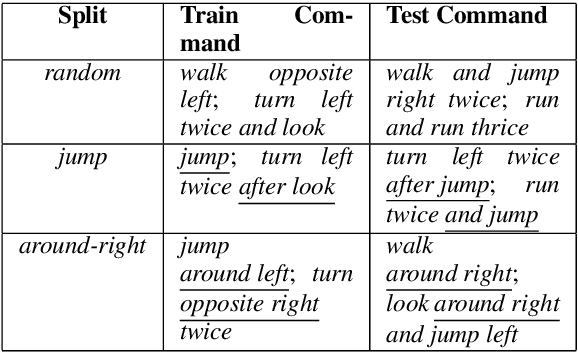
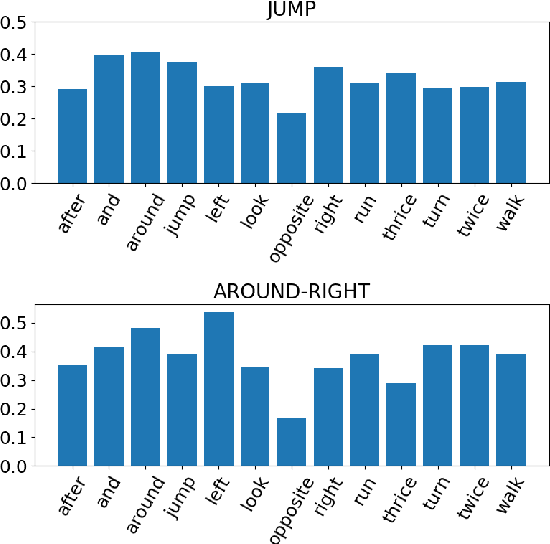

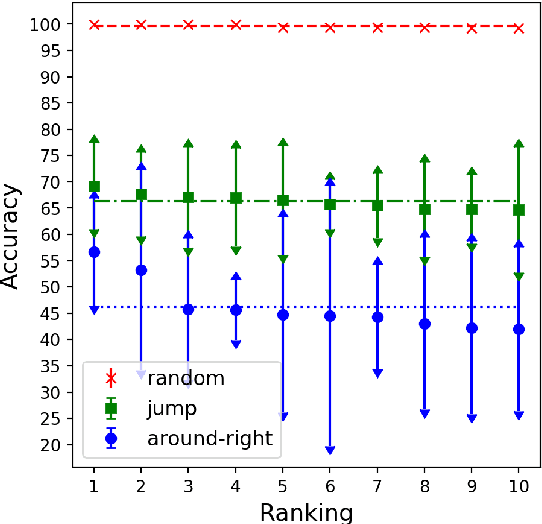
Abstract:Lake and Baroni (2018) introduced the SCAN dataset probing the ability of seq2seq models to capture compositional generalizations, such as inferring the meaning of "jump around" 0-shot from the component words. Recurrent networks (RNNs) were found to completely fail the most challenging generalization cases. We test here a convolutional network (CNN) on these tasks, reporting hugely improved performance with respect to RNNs. Despite the big improvement, the CNN has however not induced systematic rules, suggesting that the difference between compositional and non-compositional behaviour is not clear-cut.
Fine-tuning on Clean Data for End-to-End Speech Translation: FBK @ IWSLT 2018
Oct 16, 2018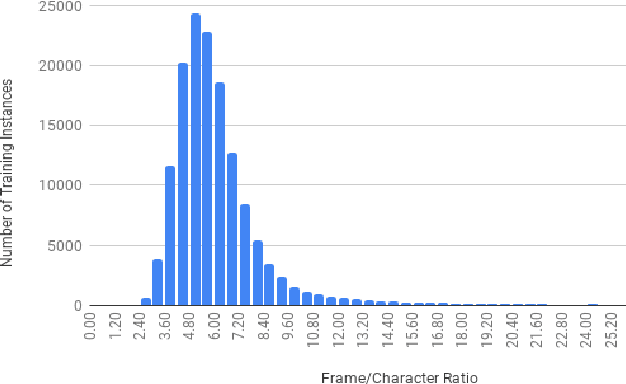
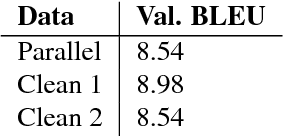
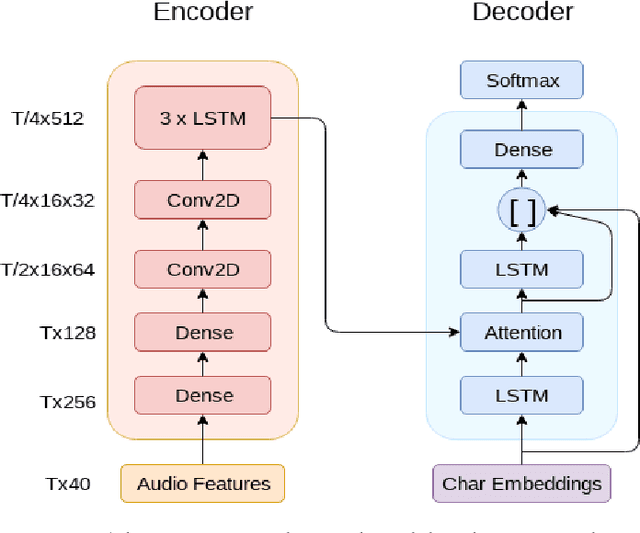
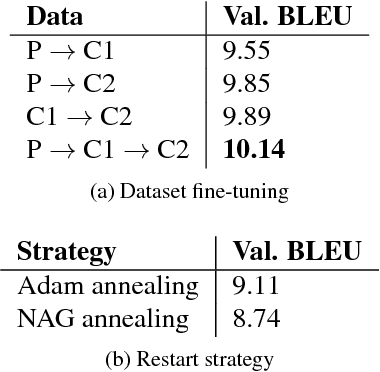
Abstract:This paper describes FBK's submission to the end-to-end English-German speech translation task at IWSLT 2018. Our system relies on a state-of-the-art model based on LSTMs and CNNs, where the CNNs are used to reduce the temporal dimension of the audio input, which is in general much higher than machine translation input. Our model was trained only on the audio-to-text parallel data released for the task, and fine-tuned on cleaned subsets of the original training corpus. The addition of weight normalization and label smoothing improved the baseline system by 1.0 BLEU point on our validation set. The final submission also featured checkpoint averaging within a training run and ensemble decoding of models trained during multiple runs. On test data, our best single model obtained a BLEU score of 9.7, while the ensemble obtained a BLEU score of 10.24.
 Add to Chrome
Add to Chrome Add to Firefox
Add to Firefox Add to Edge
Add to Edge